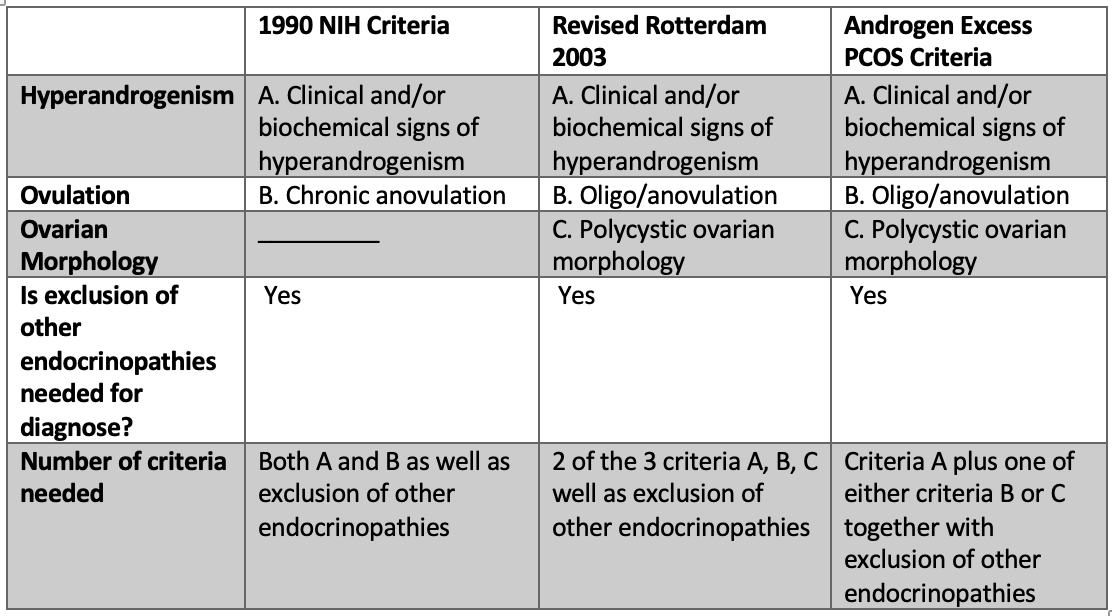Polycystic Ovarian Syndrome (PCOS) Criteria
Criteria for Diagnosing PCOS
Polycystic ovarian syndrome is a complex condition. Polycystic ovarian syndrome is a common condition in women age 18-44 and estates suggest that at least 1 in 10 women are affected. Genetic, hormonal (high androgens), inflammatory and endocrine (insulin resistance) issues contribute all contribute to this complex disease.
The condition can not be diagnosed based on symptoms alone. A good history together with blood tests and possibly an ultrasound test in some women as well are all used to make the diagnosis.
See article: Blood Tests for PCOS: What labs are important to consider?
Most women with PCOS have irregular periods and evidence of clinical or lab evidence of increased androgens. Hair growth on the face (hirsutism), or abdomen, chest, nipples, along with hair loss on the scalp and acne are common signs of hyperandrogenism in women with PCOS. Other symptoms include heavy periods, headaches, darkening of the skin (acanthuses nigricans), skin tags, diabetes, pre-diabetes, high blood pressure, high cholesterol obesity, and infertility. Women with PCOS are at increased risk for cardiovascular disease and uterine cancer.
PCOS Diagnostic Criteria
The criteria for diagnosing PCOS have changed slightly over time. The criteria are designed to help clinical identify patients with potential PCOS. Two criteria are commonly used including the Revised Rotterdam criteria and the Androgen Excess PCOS Criteria. The criteria are similar. Patients with clinical and/or biochemical signs of hyperandrogenism together with irregular menstrual cycles and/or meet the strict criteria for polycystic ovarian morphology on ultrasound are considered to have PCOS. The diagnosis is one of exclusion however and all other endocrinopathies and hormone issues needed to be ruled out first such as thyroid issues, prolactin related issues and congenital adrenal hyperplasia.
This article was written by Dr. Jeff Donovan, a Canadian and US board certified dermatologist specializing exclusively in hair loss.

